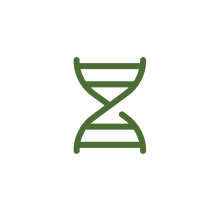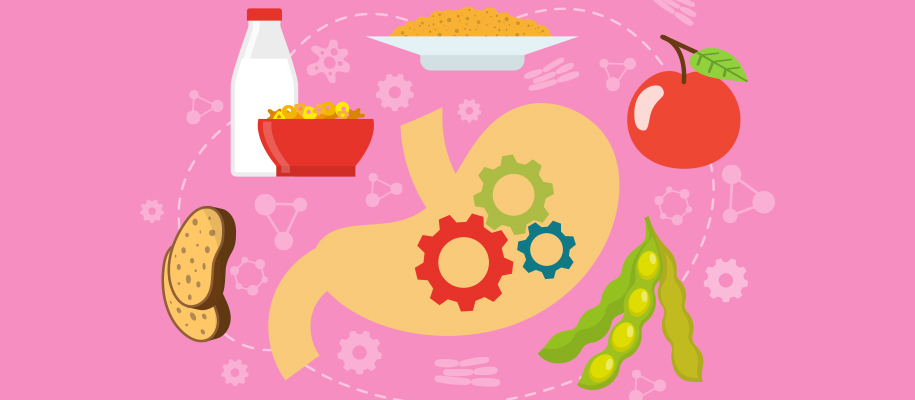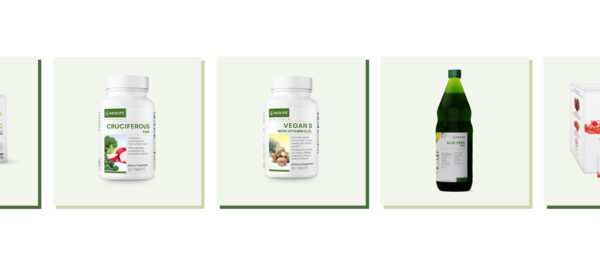 By Dr. Liz Applegate,
By Dr. Liz Applegate,
Scientific Advisory Board member
“What you see is what you get.” Right? Well, not exactly when it comes to eating a healthful plate of food like veggies and lean protein or swallowing down some key dietary supplements. What you “see” isn’t what your body necessarily gets!! Fifty plus different nutrients and hundreds of protective compounds enter our body through the foods we eat. But there’s a catch. What and how much enters our body’s circulation and then cells depend upon the efficiency of our body’s digestive tract. Also, a host of other factors including our gut microbiome’s health and composition (types and variety of resident bacteria), and the presence or absence of “assistors” impact the digestion and assimilation process.
Super charge your diet by simply boosting digestive efficiency along with optimizing the body’s ability to assimilate nutrients from foods and dietary supplements you eat.
Digestion:
Think of your digestive tract as a long tube that works much like a selective vacuum hose taking up the food and supplements for processing (digesting or breaking apart) for potential entry into your circulation and body. The trouble is your digestive track likely doesn’t operate very efficiently. In fact, some of the foods and supplements are not fully digested and/or their nutrients (vitamins, minerals, protein, essential fats, and protective compounds) fail to enter the circulation, hence never making it into your body to do any good.
Enhancing your digestive tract’s ability to get more out of your diet requires some simple awareness and steps. By improving your digestive efficiency and nutrient availability, you literally super charge your diet and put more health-boosting nutrients such as protein and phenols from fruits and veggies to work enhancing your health and lowering risk for some chronic ailments.1
Microbiome Magic:
Researchers learn more every year about the benefits of a healthy microbiome– the millions of bacteria that populate your intestinal tract and provide potential health benefits to you! Studies show that probiotics (food or supplement with sufficient live bacteria that provides health benefits to the host) improve protein digestibility through the microbiome’s and host’s protein digesting enzymes called proteases.2 This translates to greater numbers of protein building blocks called amino acids being absorbed into the system. This action translates to more efficient protein formation from a single protein dose. Studies also show that the presence of healthy bacterial strains in the gut, particularly in the large intestine from the use of probiotics, also helps boost absorption of minerals such a calcium and magnesium.3
A healthy gut microbiome also improves the bioavailability (amount of a compound that enters the circulation) of polyphenols.4 These colorful compounds found in grapes, pomegranates, berries, tea and so much more are known to support healthy aging. But these health-boosting compounds are notoriously poorly absorbed. According to research however, probiotic supplementation along with consumption of polyphenols from foods or supplements improves bioavailability of polyphenols, which in turn leads to greater levels of phenols infusing body cells with potential health benefits.4 Researchers theorize that probiotics improve nutrient absorption by curbing gut inflammation and promoting healthy absorptive surface in the gut.
Bioavailability Boosters:
The amount of a nutrient you absorb from food, or a dietary supplement, depends upon what else is present at the meal. This is part of the reason why taking your dietary supplements with a meal is best. Here are a few positive pairings:
Vitamin D and calcium – Vitamin D plays a key role in calcium (a mineral critical for bone health and cellular function like muscle contraction) absorption.
Vitamin C and iron – Iron absorption follows a complex and highly regulated pathway, one that can be impeded by factors in the diet, including certain types of fiber, select minerals and even some pharmaceutical drugs. But adding a touch of vitamin C from foods (citrus or peppers) or dietary supplement enhances iron bioavailability two-fold!
Fat (oil) and antioxidants – Fat-soluble vitamins such as vitamin E and other antioxidants including carotenoids (lycopene and beta carotene) become more bioavailable when fat is present at a meal such as olive-oil based dressing combined with antioxidant-rich green salad dressing. Food fats/oils facilitate entry of fat-soluble compounds into the digestive tract lining.
Making the most of what’s in your already healthful diet is within reach. Choose the NeoLife Difference.
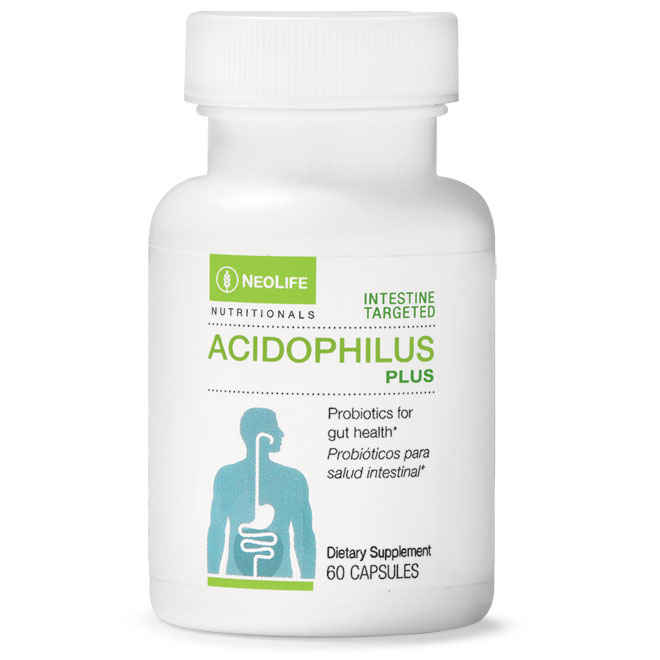 Acidophilus Plus – Probiotic with 5 billion live micro-organisms delivering five types of beneficial, lactic acid-producing bacteria for gut health and digestive balance.* Exclusive Gel-Gard technology for targeted delivery to the intestines.
Acidophilus Plus – Probiotic with 5 billion live micro-organisms delivering five types of beneficial, lactic acid-producing bacteria for gut health and digestive balance.* Exclusive Gel-Gard technology for targeted delivery to the intestines.
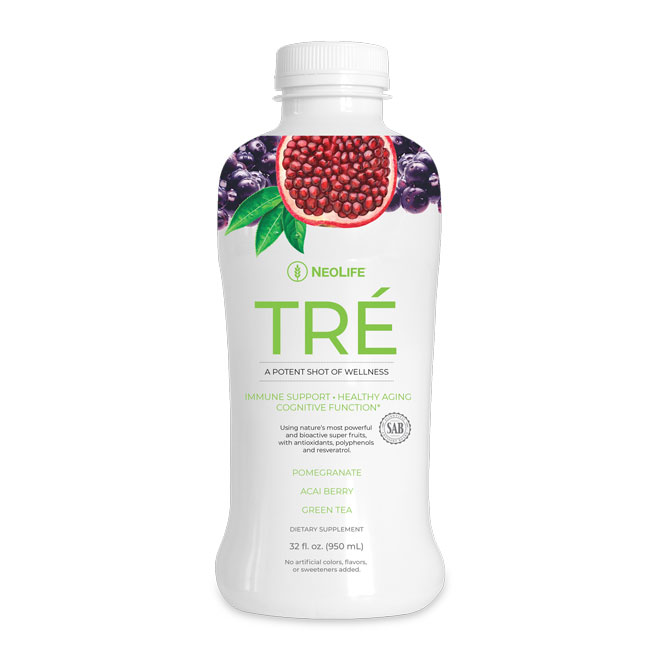 Tré – Great source of flavonoids and contains pomegranate and açaí extracts, green tea polyphenols, and our Proprietary Inflox Berry Blend rich in polyphenols.
Tré – Great source of flavonoids and contains pomegranate and açaí extracts, green tea polyphenols, and our Proprietary Inflox Berry Blend rich in polyphenols.
 Chelated Cal-Mag – Chelated calcium to support bone health along with 25 mcg of vitamin D3 per serving to promote calcium absorption.*
Chelated Cal-Mag – Chelated calcium to support bone health along with 25 mcg of vitamin D3 per serving to promote calcium absorption.*
See more at shopneolife.com.
References:
-
- Singh RK, et al. Influence of diet on the gut microbiome and implications for human health. J Transl Med. 2017 Apr 8; 15(1): 73. doi: 10.1186/s12967-017-1175-y.
- Wang J, Haifeng J. Influence of Probiotics on Dietary Protein Digestion and Utilization in the Gastrointestinal Tract. Curr Protein Pept Sci. 2019; 20(2): 125-31. doi: 10.2174/1389203719666180517100339.
- Jäger R, et al. International Society of Sports Nutrition Position Stand: Probiotics. J Int Soc Sports Nutr. 2019 Dec; 16(1): 62. doi: 10.1186/s12970-019-0329-0.
- 4. Kay CD, et al. Anthocyanins and Flavanones Are More Bioavailable than Previously Perceived: A Review of Recent Evidence. Annu Rev Food Sci Technol. 2017 Feb; 8: 155-80. doi: 10.1146/annurev-food-030216-025636.













